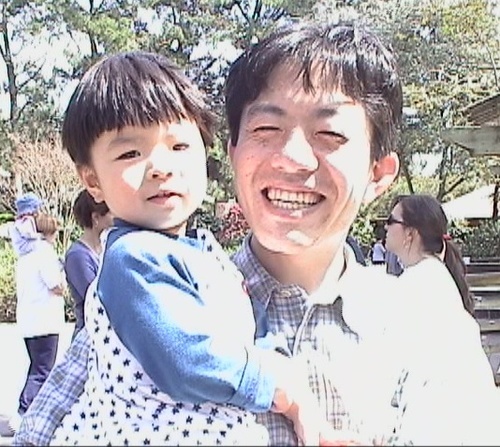結果
| 問題 | No.659 徘徊迷路 |
| コンテスト | |
| ユーザー |
 tnakao0123 tnakao0123
|
| 提出日時 | 2018-03-04 00:20:46 |
| 言語 | C++11(廃止可能性あり) (gcc 15.2.0 + boost 1.89.0) |
| 結果 |
AC
|
| 実行時間 | 14 ms / 2,000 ms |
| コード長 | 2,773 bytes |
| 記録 | |
| コンパイル時間 | 677 ms |
| コンパイル使用メモリ | 88,112 KB |
| 実行使用メモリ | 5,376 KB |
| 最終ジャッジ日時 | 2024-07-05 05:08:02 |
| 合計ジャッジ時間 | 1,465 ms |
|
ジャッジサーバーID (参考情報) |
judge4 / judge5 |
(要ログイン)
| ファイルパターン | 結果 |
|---|---|
| sample | AC * 5 |
| other | AC * 12 |
ソースコード
/* -*- coding: utf-8 -*-
*
* 659.cc: No.659 徘徊迷路 - yukicoder
*/
#include<cstdio>
#include<cstdlib>
#include<cstring>
#include<cmath>
#include<iostream>
#include<string>
#include<vector>
#include<map>
#include<set>
#include<stack>
#include<list>
#include<queue>
#include<deque>
#include<algorithm>
#include<numeric>
#include<utility>
#include<complex>
#include<functional>
using namespace std;
/* constant */
const int MAX_H = 10;
const int MAX_W = 10;
const int MAX_N = (MAX_H - 2) * (MAX_W - 2);
const int dxs[] = { 1, 0, -1, 0 }, dys[] = { 0, -1, 0, 1 };
/* typedef */
typedef double vec[MAX_N];
typedef vec mat[MAX_N];
/* global variables */
string flds[MAX_H];
/* subroutines */
inline void initvec(int n, vec a) { fill(a, a + n, 0.0); }
inline void initmat(int n, mat a) {
for (int i = 0; i < n; i++) initvec(n, a[i]);
}
inline void unitmat(int n, mat a) {
initmat(n, a);
for (int i = 0; i < n; i++) a[i][i] = 1.0;
}
inline void copymat(int n, const mat a, mat b) { memcpy(b, a, sizeof(mat)); }
inline void addmat(int n, const mat a, const mat b, mat c) {
for (int i = 0; i < n; i++)
for (int j = 0; j < n; j++) c[i][j] = a[i][j] + b[i][j];
}
inline void mulmat(int n, const mat a, const mat b, mat c) {
for (int i = 0; i < n; i++)
for (int j = 0; j < n; j++) {
c[i][j] = 0.0;
for (int k = 0; k < n; k++)
c[i][j] += a[i][k] * b[k][j];
}
}
inline void powmat(int n, const mat a, int b, mat c) {
mat s, t;
copymat(n, a, s);
unitmat(n, c);
while (b > 0) {
if (b & 1) {
mulmat(n, c, s, t);
copymat(n, t, c);
}
mulmat(n, s, s, t);
copymat(n, t, s);
b >>= 1;
}
}
inline void mulmatvec(int n, const mat a, const vec b, vec c) {
for (int i = 0; i < n; i++) {
c[i] = 0.0;
for (int j = 0; j < n; j++) c[i] += a[i][j] * b[j];
}
}
inline int xy2p(int x, int y, int w) { return (y - 1) * (w - 2) + (x - 1); }
/* main */
int main() {
int h, w, t;
cin >> h >> w >> t;
int sy, sx, gy, gx;
cin >> sy >> sx >> gy >> gx;
for (int y = 0; y < h; y++) cin >> flds[y];
int n = (h - 2) * (w - 2);
mat a;
initmat(n, a);
for (int y = 1; y < h - 1; y++)
for (int x = 1; x < w - 1; x++)
if (flds[y][x] == '.') {
int cnt = 0, p = xy2p(x, y, w);
bool bs[4] = { false };
for (int di = 0; di < 4; di++) {
int vx = x + dxs[di], vy = y + dys[di];
if (flds[vy][vx] == '.') cnt++, bs[di] = true;
}
if (cnt == 0) a[p][p] = 1.0;
else
for (int di = 0; di < 4; di++)
if (bs[di]) {
int vx = x + dxs[di], vy = y + dys[di], vp = xy2p(vx, vy, w);
a[p][vp] = 1.0 / cnt;
}
}
mat c;
powmat(n, a, t, c);
int sp = xy2p(sx, sy, w), gp = xy2p(gx, gy, w);
printf("%.16lf\n", c[sp][gp]);
return 0;
}
